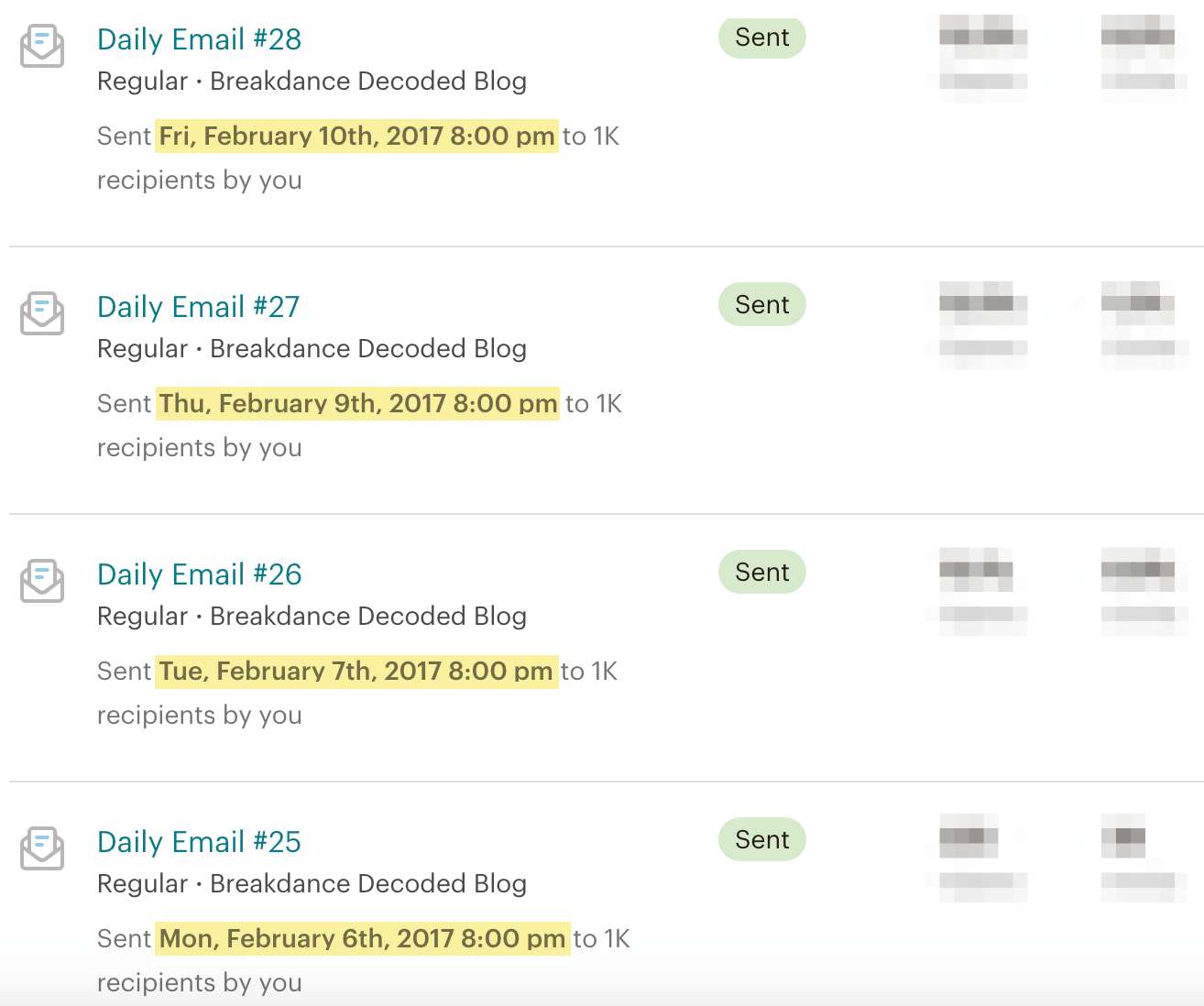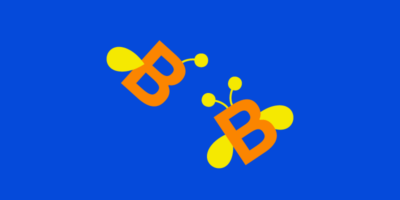
How did I become a content creator for such a popular blog? Well, I’ll talk about it later in the post. But before you carry on reading, I want you to know there are many paths to becoming a content creator. The path I followed is merely one of them. But since it’s the only one I know, it’s the one I’ll share.
Let’s begin with some fundamentals.
What is a content creator?
A content creator is someone who creates written, audio, video, or visual content for a digital platform like Instagram, TikTok, YouTube, or a blog.
They can be working in-house for a company (like me) or agency, freelancing, or doing their own thing (e.g., influencers).
What does a content creator do?
They create content. (Duh!) Besides that, they may also:
- Create a content strategy.
- Manage a content calendar.
- Research content ideas.
- Design and edit visuals.
- Record and edit videos.
- Produce podcasts.
- Do basic SEO.
- Have a deep understanding of the channels they produce content for, including the latest updates and changes.
How much do content creators make?
There is no limit to how much a content creator can make.
But how much you make depends on whether you’re working in-house, freelancing, or doing your own thing. You may also earn more if you:
- Have subject matter expertise.
- Have a sizeable following on the platform where you create content.
- Have a well-known and well-respected brand.
According to Zippia, the median content creator salary is $52,000 annually. However, some content creators have been known to earn up to six figures.
For example, Jon Morrow of SmartBlogger used to charge up to $2.50 per word when he was freelancing. That’s $5,000 for a 2,000-word post. One article per week means Jon’s making six figures a year.

Other examples include:
- Nate O’Brien, a YouTuber who earned ~$444,000 in a year.
- Bill Bishop, who’s making six figures annually from Substack.
- John Lee Dumas, the podcaster making six figures a month(!).
How to become a successful content creator
Looking back at my own career, I’ve identified some key things that led me to become a content creator.
1. Choose a niche to develop your knowledge and skills
To create content, you need to first have a topic. It can be anything: finance, football, or even Pokemon cards. In fact, I started off writing about breakdancing.

I chose breakdancing because it was something I was already familiar with. I had been doing it for almost eight years at that point and had accumulated a ton of knowledge. I just needed to figure out how to share it.
Content creation is ultimately not about just how beautiful your writing is or how magical your videos are. Of course, they play a part. But the core of content creation is about your ideas. If you don’t have something to share—or you don’t have the required knowledge—it doesn’t matter how much time you spend refining your work. People just won’t care.
As bestselling finance author Morgan Housel puts it:
Good ideas are easy to write, bad ideas are hard. Difficulty is a quality signal, and writer’s block usually indicates more about your ideas than your writing.
To become a successful content creator, you need to start with an area where you either have existing knowledge/expertise or an area where you can develop knowledge.
It’s OK if you don’t have expertise right now. On the contrary, it’s a great way to begin. Document your journey and create content around how you’re learning, practicing, and gaining knowledge. People love to follow stories of someone going from zero to one.
In fact, #buildinpublic is a popular hashtag on Twitter, and it has been a rallying point for many people who are creating content and learning in public.
https://twitter.com/threehourcoffee/status/1487716160850124803
Finally, the niche you choose now is not something you’re limited to forever. You can always change topics as you progress. I no longer create content about breakdancing and, instead, spend most of my time writing about marketing.
But the key point is this: You have to choose something to get started—one that matches your strengths and the niche you’re developing your expertise in.
2. Choose a content creation skill you’d like to develop
Next, you have to choose a content format and then develop skills in that area. Types of content creation skills include:
- Copywriting/writing
- Graphic design
- Photography
- Video production
- Podcasting
And more.
For example, if your niche is taekwondo, then perhaps you may want to consider developing your skills in video production.
That being said, playing to your strengths is more important. Creating content is a long journey. And creating the type of content you like on a topic you’re passionate about will help you go a long way.
This is why, despite the fact that writing was (likely) a terrible medium for breakdancing, I still chose to go for copywriting in the end. The fact that I was already interested in writing—coupled with me being camera shy—made this decision a no-brainer. In hindsight, writing matched my strengths and has served me well so far.
If you’re like me and want to improve your copywriting skills, I highly recommend these resources:
- The Boron Letters (Book)
- The Adweek Copywriting Handbook (Book)
- Ogilvy on Advertising (Book)
- The Halbert Copywriting Method Part III (Book)
3. Create a “Do 100” project
There’s no way around it. If you want to learn how to create content, you have to create content.
If you want to improve your content creation skills, the best way is to actually make something and put it out there. Yes, it is scary. Yes, it will hurt to get feedback. But you have to go through this phase to become a successful content creator.
To tackle the above, I recommend creating a “Do 100” project. This is an idea that was popularized by my friend, Visakan Veerasamy. Basically, commit to making 100 of X, where X is the content creation skill you want to improve.
Here’s the magic of Do 100 Thing: the first 20 might look like crap, and you might think you’ll never get better if you do 1000, and then number 30 turns out better than you thought possible (h/t @shrinetothevine) pic.twitter.com/Kz8cISI5Yk
— Visakan Veerasamy (@visakanv) October 11, 2021
For example, if you’re trying to excel at making short-form videos, then commit to creating 100 TikTok videos. If you’re writing, commit to crafting 100 tweets or writing 100 blog posts. If you’re learning photography, post 100 photos on Instagram.
The reason why this works is twofold:
- Commitment – A project is a forcing hand. No more procrastination or constant deliberation. This is the reason why challenges like #tweet100 and #ship30for30 are so popular.
- Volume – A ceramics teacher split his class into two groups: One was graded solely on the quantity of work they produced, the other on the quality of work. The result: The group graded for quantity produced works of higher quality. Quantity leads to quality. The more you create, the better you become.
My story is similar too. While I didn’t call it a “Do 100” project back then, I committed to sending an email a day, five days a week, to the subscribers of my breakdance blog. I eventually wrote over a hundred emails. Looking back, I now realize this project really skyrocketed my writing skills.

4. Get a job as a content creator
After running my breakdance blog and working for an (eventually unsuccessful) startup, I was hired as a content marketing manager at ReferralCandy. At ReferralCandy, a big part of my work was to create blog posts. But it wasn’t simply any blog post. I had to create blog posts that were part of a content marketing strategy.
Because of my work at ReferralCandy, I eventually joined Ahrefs—and this is where I’ve been for the past three years.
You don’t have to get a job to become a successful content creator. But I don’t regret this path. After all, a content creator’s job today is no longer just about content creation. It involves many parts of marketing.
Working at multiple companies has introduced me to important marketing skills like content marketing and SEO. It has also helped me to learn how to plan and create content as part of a coherent marketing strategy. All of these can only serve to better your profile as a content creator.
I highly recommend picking up these skills too. Use this resource to get started or watch this course:
The most direct way to get a job as a content creator is to look for open job positions. With your “Do 100” project as your portfolio, you’ll be in good standing to get one. Look through these job boards and see if you fit the jobs’ criteria. Expand your horizons a little—positions like “content marketing manager” or “content strategist” could be good matches too.
Networking is important as well. I got my jobs at ReferralCandy and Ahrefs because I had met and befriended both the heads of marketing. Don’t overcomplicate this. If you’re learning from someone right now, reach out and thank them for their content. This is how you can kickstart a relationship with someone you admire.
5. Furthering your career
As you progress along your career path and publish more, you’ll begin to gain a reputation in your niche. You may even build a decent following along the way.
If you’re interested, you can consider branching out and playing with different projects. For example, you may want to freelance for other websites. If that’s the path you’re pursuing, I recommend reading this post by Nick LeRoy. While it’s specifically about SEO freelancing, most of the principles can be applied to any form of freelancing.
There are other monetization opportunities too, besides freelancing. Ideas include:
- Product sponsorships and advertising
- Speaking engagements
- Substack or other forms of subscriptions
- Online courses
- Books
- Affiliate marketing
- Ecommerce, e.g., setting up your own shop to sell merchandise
The world’s your oyster. Play around and see which one matches your circumstance and context.
Final thoughts
As a content creator, you never stop learning.
You need to stay up to date and learn about the changes in your chosen niche, as well as the platforms you’re creating content for. You also need to stay current on what your audience wants to see.
Finally, as you learn more and more, you’ll start to develop tastes and opinions. You’ll begin to figure out what works and what doesn’t. This will be what makes you stand out from the hundreds and thousands of other content creators.
Did I miss out on anything? Let me know on Twitter.




